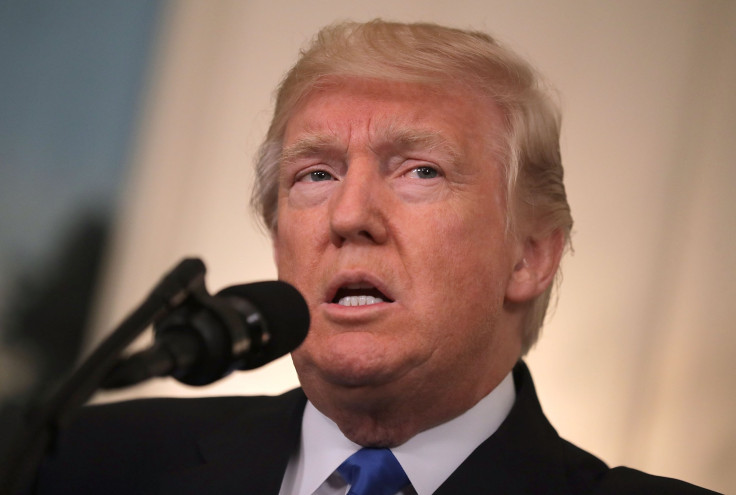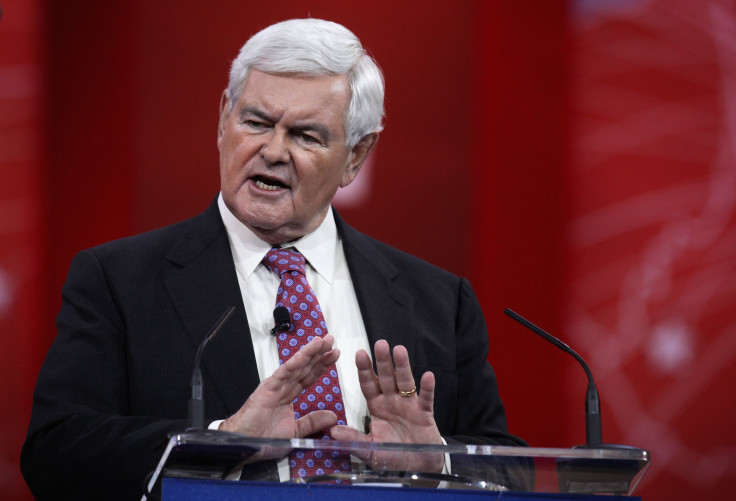Is Trump Closer To Being Impeached Now That He's Being Investigated For Obstruction Of Justice?

The Washington Post report Wednesday that Special Counsel Robert S. Mueller III had widened his investigation into President Donald Trump for obstruction of justice has renewed buzz around the capital about the possibility of impeachment.
Before the report, Mueller's probe had only extended to the investigation of the Trump campaign for potential collusion with the Russian government during the 2016 presidential election. In light of a dramatic testimony by former FBI Director James Comey where he described how President Trump asked him to drop an investigation into former NSA Director Michael Flynn, Mueller has decided to widen his search to probe whether or not Trump obstructed justice.
The recent history of impeachment, however, has shown that obstruction of justice has more precedence in American politics than collusion with a foreign government.
NEW: Can President Donald Trump Be Impeached Through Petitions? How The Impeachment Process Works
The last president was Bill Clinton, who was impeached by Congress in 1998 for perjury and obstruction of justice in relation to the testimony around his extramarital affair with Monica Lewinsky. Originally, that investigation was brought about to investigate the failed land deal known as Whitewater.
Like Trump, Clinton was investigated by an independent counsel, Kenneth Starr. After the House vote, Clinton was later acquitted by the Senate.
In 1974, President Richard Nixon was brought up on charges for three articles of impeachment: obstruction of justice, abuse of power, and contempt of Congress following hearings that investigated the Nixon campaign breaking into the Democratic National Convention's office in the Watergate hotel during the 1972 presidential election.
Nixon resigned following the release of the so-called "Watergate tapes" that revealed he was complicit in the coverup of the break-in. He was never impeached by the Senate and was later controversially pardoned by President Gerald Ford.
NEW: Donald Trump's Approval Rating Close To All-Time Low As Impeachment Betting Odds Soar

Newt Gingrich, former Secretary of State and ardent supporter of Trump, said Friday that the President "cannot obstruct justice." The quote has drawn the comparison to a famous quote by Nixon from a 1977 interview with David Frost: "When the president does it, that means it is not illegal."
"Technically, the President of the United States cannot obstruct justice," Gingrich said at the National Press Club at a Washington, D.C., event while promoting his book "Understanding Trump." "The President of the United States is the chief executive officer of the United States. If he wants to fire the FBI director, all he's got to do is fire him."
Gingrich's past actions, however, shows a different story. Gingrich was one of the 221 members of the House of Representatives who voted to impeach Clinton for obstruction of justice in 1998 and one of the leading advocates for Clinton's impeachment. Gingrich continued, saying that the liberal side of the of the political aisle are "engaged in the Salem witchcraft."
"The left right now is engaged in the Salem witchcraft process of, 'We know somebody's evil, we know somebody's bad. I wonder who we should burn at the stake? Maybe it's you, whoever you are,'" Gingrich said. He then referenced the Arthur Miller's "The Crucible" and said, "that's the mentality of the left right now."
Meanwhile, Democrats have ratcheted up their calls for impeachment proceedings in light of reports that Trump was considering firing Mueller, and attacking Deputy Attorney General Rod Rosenstein on his Twitter feed. Both Mueller and Rosenstein are leaders in the investigation into Trump's potential collusion with Russia and obstruction of justice.
“All Americans, regardless of party, agree on the fundamental principle that no one is above the law,” said Democratic Rep. Ted Lieu (D-Calif.) said on MSNBC on Friday. “And if President Trump were to fire Deputy Attorney General Rosenstein, and then [get] special counsel Mueller fired, I believe Congress would begin impeachment proceedings.”
On June 12, a poll from Public Policy Polling showed 47 percent of voters support Trump being impeached, while 43 percent oppose it.
© Copyright IBTimes 2025. All rights reserved.





















